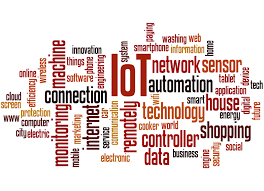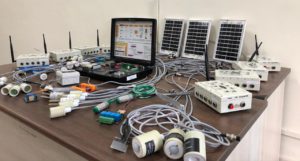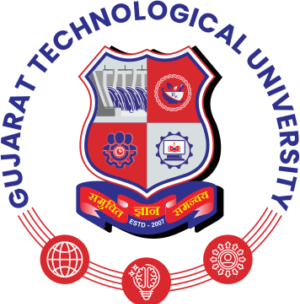 The internet-of-things (IoT) is gradually being established in internet-based computing, which is already having a positive impact in a large number of application domains including smart cities, sustainable living, healthcare, manufacturing and many more. IoT systems involve interconnection with all virtually physical devices, collection and analysis of various data streams from sensors/actuators, decision making capabilities, human and machine interaction.
The internet-of-things (IoT) is gradually being established in internet-based computing, which is already having a positive impact in a large number of application domains including smart cities, sustainable living, healthcare, manufacturing and many more. IoT systems involve interconnection with all virtually physical devices, collection and analysis of various data streams from sensors/actuators, decision making capabilities, human and machine interaction.
As on date, there are many unsolved issues in IoT enabled devices such as lack of standardisation, Security, Data Analytics and lack of experts. To solve these issues, it is required to produce manpower, technologies, and solutions in the field of IoT for national importance.
In this program, the students will learn various subjects such as fundamental of IoT, design of embedded system, IoT OS and device drivers, as core subject with hands on practices. The program contains various program elective subjects to explore various domains of IoT that includes machine learning, AI, deep learning, sensors & actuator, programming technologies, big data technologies, cloud computing, real-time data analytics, industry 4.0, wireless sensor network, high performance computing, and latest developments with practical explorer.
Career Opportunities in the Program
The IoT is going to be the dominant technology, where any device can connect with any other device in the world. The IoT integrates ambient sensing, ubiquitous communications, intelligent analytics, and pervasive computing.
As per a joint report by IAMAI (The Internet and Mobile Association of India) and Deloitte, Industrial, IoT is expected to surpass the consumer IoT space in India by 2020. It also predicts a $12 billion IoT opportunities worldwide. The accelerated pace of IoT adoption in the country will make sectors like industrial manufacturing, energy, agriculture, utilities, transport, and logistics lead the market etc, per the same report.
In the Gujarat state, small enterprises are providing IoT solutions with limited technical and human resources. It is required to create IoT Ecosystem at the University to fulfil the demand of IoT Solutions.
Program Outcomes
- An ability to independently carry out research /investigation and development work to solve practical problems.
- An ability to write the present substantial technical report/documents.
- Students should be able to demonstrate a degree of mastery over the area as per the specialization of the program. The mastery should be at a level higher than the requirements in the appropriate bachelor program.
Program Specific Outcomes
- To understand various aspects of Internet of Things, embedded systems, sensors, actuators, various algorithm of machine learning, artificial intelligence and protocols.
- To implement various methods, techniques, algorithms of deep learning, real-time data analysis, cloud computing, wired & wireless technologies, and programming/script languages in the field of IoT.
- Identify, analyse and develop various algorithm, techniques in software and hardware solutions for complex and real-time problems in the field of IoT.
- Apply advanced knowledge to identify research challenges, and contribute individually or in team to resolve new solutions/products/methods in the field of IoT.
Program Educational Objectives
- Impart knowledge/skill in the areas of IoT, AI, deep learning, cloud computing and Industry 4.0
- Work in reputed computer and IT based multinational companies, government and research organizations or as an entrepreneur to build novel solutions of real-time issues for the nation.
- Able to cope with IoT challenges through continuing education, increased responsibility, team work and ethical code of conduct.
Internet of Thing Laboratory:
 IoT-LAB is a part of the future Internet of the Thing) platform. It is a set of complementary components that enable experimentation on innovative services for academic and industrial users. The project gives students a way to experiment on mobile wireless communications to the network and on application layers, thereby accelerating the design of advanced networking technologies for the Future Internet.
IoT-LAB is a part of the future Internet of the Thing) platform. It is a set of complementary components that enable experimentation on innovative services for academic and industrial users. The project gives students a way to experiment on mobile wireless communications to the network and on application layers, thereby accelerating the design of advanced networking technologies for the Future Internet.
Objective of Internet of Things (IoT) Laboratory is to perform and verify various concept of IoT as per the course curriculum, development of various IoT applications by our PG Students, and investigation of new technologies, algorithms for future demands. In the laboratory, following resources are available.
Other than above laboratory there is MATLAB licence software and some open source software are utilized for simulation purpose.
| Subject code | Branch code | Subject Name | Category | Semester | L | T | P | Credit | E | M | I | V | Total Marks |
|---|---|---|---|---|---|---|---|---|---|---|---|---|---|
| 3700004 | 62 | Value Education | Audit | 1 | 2 | 0 | 0 | 0 | 50 | 0 | 0 | 0 | 50 |
| 3710001 | 62 | Research Methodology and IPR | MLC | 1 | 1 | 0 | 2 | 2 | 0 | 0 | 20 | 80 | 100 |
| 1716201 | 62 | Fundamentals of IoT | Core -I | 1 | 3 | 0 | 2 | 4 | 70 | 30 | 20 | 30 | 150 |
| 1716202 | 62 | Design of Embedded System | Core -II | 1 | 3 | 0 | 2 | 4 | 70 | 30 | 20 | 30 | 150 |
| 1716203 | 62 | Gateway Design of IoT | Program Elective -I | 1 | 3 | 0 | 2 | 4 | 70 | 30 | 20 | 30 | 150 |
| 1716204 | 62 | Artificial Intellgence and Soft Computing | Program Elective -I | 1 | 3 | 0 | 2 | 4 | 70 | 30 | 20 | 30 | 150 |
| 1716205 | 62 | High Performance Computing | Program Elective -I | 1 | 3 | 0 | 2 | 4 | 70 | 30 | 20 | 30 | 150 |
| 1716206 | 62 | Sensor, Actuator and Signal Conditioning | Program Elective -II | 1 | 3 | 0 | 2 | 4 | 70 | 30 | 20 | 30 | 150 |
| 1716207 | 62 | Programing Technologies | Program Elective -II | 1 | 3 | 0 | 2 | 4 | 70 | 30 | 20 | 30 | 150 |
| 1716208 | 62 | Mobile Application Development | Program Elective -II | 1 | 3 | 0 | 2 | 4 | 70 | 30 | 20 | 30 | 150 |
| 3700001 | 62 | English for Research Paper Writing | Audit Course | 2 | 2 | 0 | 0 | 0 | 50 | 0 | 0 | 0 | 50 |
| 3720001 | 62 | Mini Project with Seminar | Core | 2 | 0 | 0 | 4 | 2 | 0 | 0 | 100 | 0 | 100 |
| 1726201 | 62 | IoT OS and Device Drivers | Core III | 2 | 3 | 0 | 2 | 4 | 70 | 30 | 20 | 30 | 150 |
| 1726202 | 62 | Wireless Sensor Network | Core IV | 2 | 3 | 0 | 2 | 4 | 70 | 30 | 20 | 30 | 150 |
| 1726203 | 62 | Cloud Computing Technology | Program Elective III | 2 | 3 | 0 | 2 | 4 | 70 | 30 | 20 | 30 | 150 |
| 1726204 | 62 | Big Data Technolgies | Program Elective III | 2 | 3 | 0 | 2 | 4 | 70 | 30 | 20 | 30 | 150 |
| 1726205 | 62 | Real Time Operating System | Program Elective III | 2 | 3 | 0 | 2 | 4 | 70 | 30 | 20 | 30 | 150 |
| 1726206 | 62 | Security in IoT Systems | Program Elective IV | 2 | 3 | 0 | 2 | 4 | 70 | 30 | 20 | 30 | 150 |
| 1726207 | 62 | Deep Learning | Program Elective IV | 2 | 3 | 0 | 2 | 4 | 70 | 30 | 20 | 30 | 150 |
| 1726208 | 62 | Network Programming | Program Elective IV | 2 | 3 | 0 | 2 | 4 | 70 | 30 | 20 | 30 | 150 |
| 3730002 | 62 | Internal Review-I | Core | 3 | 0 | 0 | 4 | 2 | 0 | 0 | 100 | 0 | 100 |
| 3730003 | 62 | Dissertation Phase-I | Core | 3 | 0 | 0 | 16 | 8 | 0 | 0 | 0 | 100 | 100 |
3730005 | 62 | Business Analytics | Open Elective | 3 | 3 | 0 | 0 | 2 | 70 | 30 | 0 | 0 | 100 |
| 3730006 | 62 | Industrial Safety | Open Elective | 3 | 3 | 0 | 0 | 2 | 70 | 30 | 0 | 0 | 100 |
| 3730008 | 62 | Cost Management of Engineering Projects | Open Elective | 3 | 3 | 0 | 0 | 2 | 70 | 30 | 0 | 0 | 100 |
| 1736201 | 62 | Real Time Data Analytics | Program Elective V | 3 | 3 | 0 | 2 | 4 | 70 | 30 | 20 | 30 | 100 |
| 1736202 | 62 | Industrial and Automative Technolgies | Program Elective V | 3 | 3 | 0 | 2 | 4 | 70 | 30 | 20 | 30 | 100 |
| 1736203 | 62 | Network Oriented OS | Program Elective V | 3 | 3 | 0 | 2 | 4 | 70 | 30 | 20 | 30 | 100 |
Tokyo
Tokyo is the capital of Japan.


